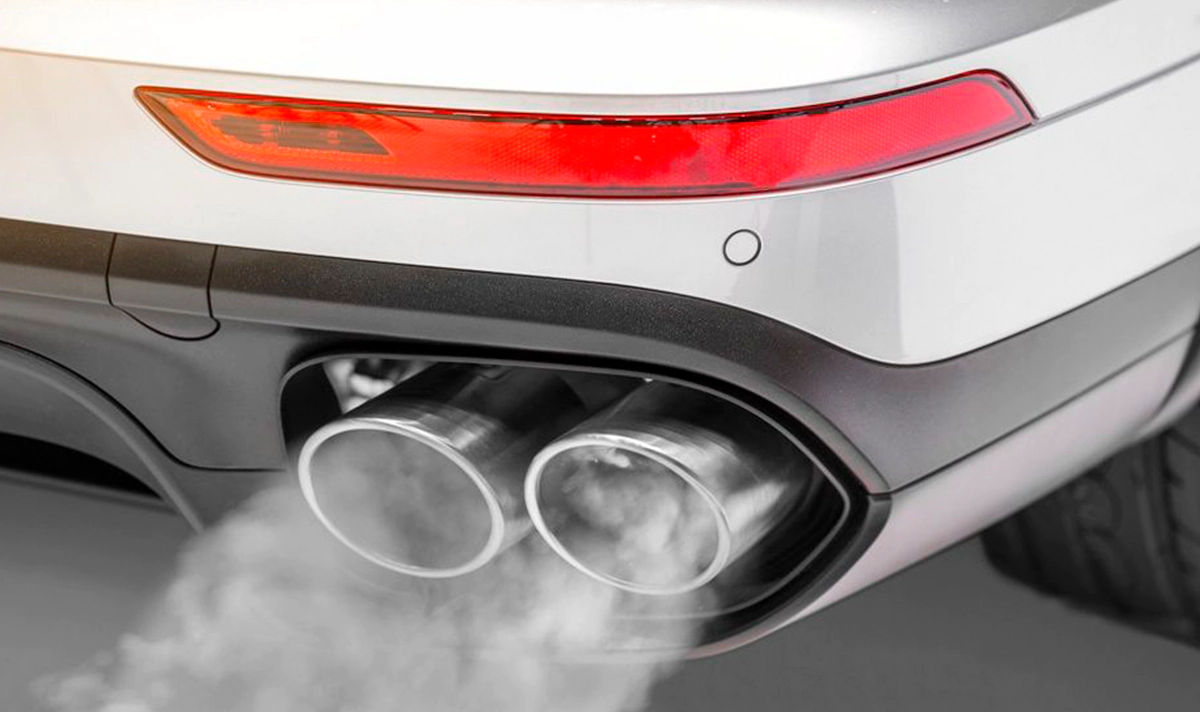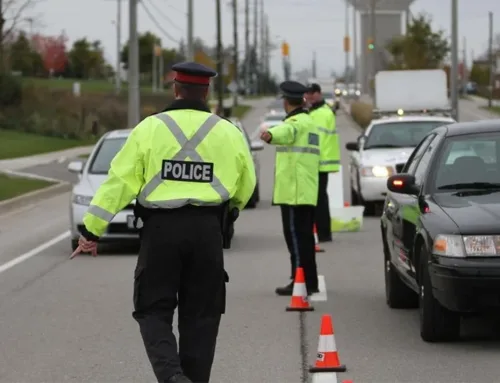Having a loud muffler or exhaust system can create unwanted disturbances on Ontario’s roads. While some drivers appreciate the rumble of their engines, others—especially the surrounding community—may find it distracting or unsettling. Beyond personal preferences, excessive vehicle noise has real legal consequences. This article explores the issue of noise pollution by vehicles, potential penalties for drivers, and ways to steer clear of fines.
What Is Considered Noise Pollution by Vehicles?
When it comes to noise from vehicles, provincial regulations and local bylaws often come into play. The term car noise pollution refers to any sound emitted by a vehicle—particularly from its engine, exhaust system, or related mechanical components—that surpasses reasonable or legally allowable levels. Authorities generally focus on whether the noise disturbs other road users or the public.
Ontario’s Highway Traffic Act (HTA)1 addresses concerns about vehicle emissions, including sound, and law enforcement officers can issue tickets if they determine the vehicle exceeds acceptable limits. In some municipalities, local ordinances may be even stricter, targeting persistent or disruptive vehicle operation that creates loud or prolonged noise.
How Loud Can Your Car Be Legally in Ontario?
Many drivers often wonder how loud can your car be without breaking the law. Although the HTA sets out a framework for permissible noise levels, it does not specify exact decibel thresholds in all circumstances. Instead, it broadly states that a vehicle must have a working muffler that prevents excessive or unusual sound.
Law enforcement officials usually rely on their judgment when deciding if a vehicle is louder than necessary. In certain situations, officers may use specialized tools to measure decibel levels if local rules require precise testing. Regularly maintaining your vehicle’s muffler and exhaust components helps ensure you remain within acceptable ranges and avoid unwanted attention.
Common Causes of Loud Exhaust Sounds
A loud exhaust sound can develop for various reasons. Owners may opt for aftermarket parts that generate more noise, or they may have a damaged muffler that fails to filter out sound effectively. Below is a brief list of common causes:
- Damaged Muffler: Rust, corrosion, or physical impact can create holes or cracks that increase noise.
- Aftermarket Modifications: Certain performance exhausts are designed to be louder, raising potential legal issues.
- Exhaust Leaks: A leak elsewhere in the system, such as near the catalytic converter, can result in additional noise.
- Poor Installation: Even new components can produce excessive noise if not installed correctly.
Ignoring these issues can lead to more than just unwanted sounds. Emissions and fuel efficiency may also be affected, creating a larger set of complications for drivers.
Penalties for Muffler Noise Violations in Ontario
Muffler noise violations in Ontario legislation generally fall under the Highway Traffic Act. A police officer may issue an excessive noise ticket or other charges if they determine that a vehicle is making an unreasonable racket. Fines can vary, but they often range from moderate to substantial, especially if there are multiple infractions.
Below is a table summarizing possible outcomes if you are pulled over and found to have a noisy car exhaust:
|
Violation |
Potential Fine |
Other Consequences |
| First Offense for Excessive Noise | $60 – $500+ | Drivers may be required to fix the issue |
| Repeated Offenses | $200 – $1000 | Higher fines, possible vehicle inspection |
| Modified Exhaust Not Permitted by Ontario Law | $110 – $1000 | May involve towing if the vehicle is deemed unsafe |
These figures vary depending on the region and the discretion of law enforcement or the courts. Failure to address the issue promptly can lead to further penalties, such as the suspension of your vehicle’s registration until repairs are made.
How to Avoid a Loud Muffler Ticket
Owning a vehicle with loud exhaust components does not mean you are destined for trouble. There are practical steps you can take to reduce the likelihood of receiving a loud muffler ticket:
- Regular Maintenance: Inspect and maintain your exhaust and muffler. Repair or replace worn parts to keep sound levels low.
- Avoid Unnecessary Revving: Revving the engine excessively in residential areas or near police presence can increase your chances of being stopped.
- Check Local Bylaws: Some municipalities may have stricter noise ordinances. Familiarize yourself with these regulations if you plan to drive in different areas.
- Use Approved Aftermarket Parts: If you want performance-enhancing modifications, choose components with noise-dampening features.
By following these practices, you can operate your vehicle without causing undue disturbance, helping to maintain a better environment on Ontario roads.
What to Do If You Receive an Excessive Noise Ticket in Ontario
Despite taking precautions, you may still face charges related to a muffler noise or an excessive noise ticket in Ontario. If this happens, it is crucial to take the appropriate steps quickly:
- Review the Ticket: Check the details to ensure there are no errors in the reported violation.
- Seek Legal Assistance: Consult with professionals who understand the laws related to Ontario Traffic Tickets2. Proper guidance can help you build a defence and clarify your options.
- Schedule Repairs: Even if you plan to challenge the ticket, addressing the noisy exhaust promptly shows your willingness to comply with regulations.
- Consider Representation: You can seek help from Traffic Paralegal Services3. They can guide you through the legal process, possibly reducing your fine or even dismissing the ticket if there is insufficient evidence.
Taking immediate action often leads to better outcomes, whether that means reduced fines or a successful defense in traffic court. Failing to appear in court or pay fines can lead to additional penalties.
Conclusion
Staying on the right side of the law when it comes to vehicle noise involves more than just courtesy. No one wants to be hit with a noisy car exhaust penalty, especially if it could have been avoided through regular maintenance and mindful driving habits. Understanding noise pollution by vehicles and what is considered car noise pollution offers insight into how to operate responsibly.
Although Ontario’s statutes do not always specify exact decibel limits, law enforcement retains the authority to judge whether a vehicle is excessively loud. Addressing potential sources of loud mufflers or louder exhaust components can go a long way toward preventing fines. If you ever face a charge or an excessive noise ticket Ontario, taking prompt steps—such as fixing mechanical issues and seeking legal support—can significantly mitigate the impact on your driving record and your wallet.









Leave A Comment
You must be logged in to post a comment.